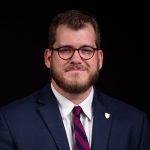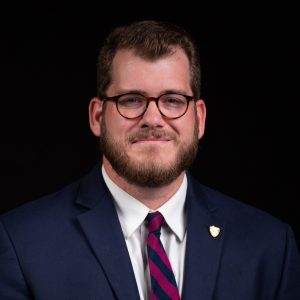We are far too worldly.
What do you do when your four daughters lie dead at the bottom of the Atlantic Ocean? There you are very much still alive in this world. But not them. What do you do?
Horatio Spafford knew what to do. He said,
“Lord haste the day when the faith shall be sight.”
It is the blessed hope that causes us to cope. But we are in process of losing that hope. And that blessed hope is worth fighting for.
There are people who reject the blessed hope. There are ideas that are incompatible with the blessed hope. There is a way to view this world as if the only things that exist are created things. That worldview leads to utter despair. What are they going to do when their four daughters lie dead at the bottom of the Atlantic Ocean?
The Christian knows that this world is not our home. There is a better city. There is a better country.
But we have decided recently that we would employ certain theories as analytical tools, theories that plainly reject the blessed hope. It is manifestly clear that critical race theory and intersectionality (CRT/I) are systems of thought that arise from a materialistic philosophy. Some have said we can use these systems of thought without being infected by the materialistic, godless worldview from which they arose. Seeing what is at stake, that’s an argument worth having.
But in order to have an argument about whether the godless ideology at the root of CRT/I will infect one who uses CRT/I, you must first acknowledge that the godless ideology is down there in the soil. That is precisely what Southern Baptists did not do in Resolution 9. And this is precisely what Tom Ascol and Founders Ministries tried to do with a friendly ammendment to the resolution which was not received as such by the committee.
There’s not a line about the origins of CRT/I. There’s no reference to the postmodern, Gramscian, radical feminist roots of the theories we now use as tools (Delgado, Critical Race Theory: An Introduction, 4). So how can we have an honest debate as to the danger of those ideas for the one who tries using the tools of CRT/I?
It is not for nothing that the apostle Paul said, “See to it that no one takes you captive by philosophy and empty deceit, according to human tradition, according to the elemental spirits of the world, and not according to Christ” (Colossians 2:8). The Christian faith is other worldly. God is not a part of this creation. Solomon could do justice in this world because he had the wisdom of God not the wisdom of a godless philosophy.
“And all Israel heard of the judgment that the king had rendered, and they stood in awe of the king, because they perceived that the wisdom of God was in him to do justice” (1 Kings 3:28).
Is there more to life than what can be seen, tasted, touched? Is there a God who is transcendent? A God who is holy and set apart? A God who is all together different than us? Are there principles of justice that are other worldly that manifest themselves in this world as people know the one true God who is set apart? Is there a blessed hope?
Marx says no. Gramsci says no. Frankfurt School says no. Critical Theory says no. Critical Race Theory says no. Intersectionality says no. Modernism says no. Neo-paganism says no. Humanism says no.
Christianity says yes.
What are you going to do when your four daughters lie dead at the bottom of the Atlantic Ocean? It is the blessed hope that causes us to cope.
And that blessed hope is worth fighting for.
Follow Jared Longshore:
-
- Twitter | @jaredlongshore
- Facebook | @jaredlongshore
- Instagram | @jaredlongshore





















